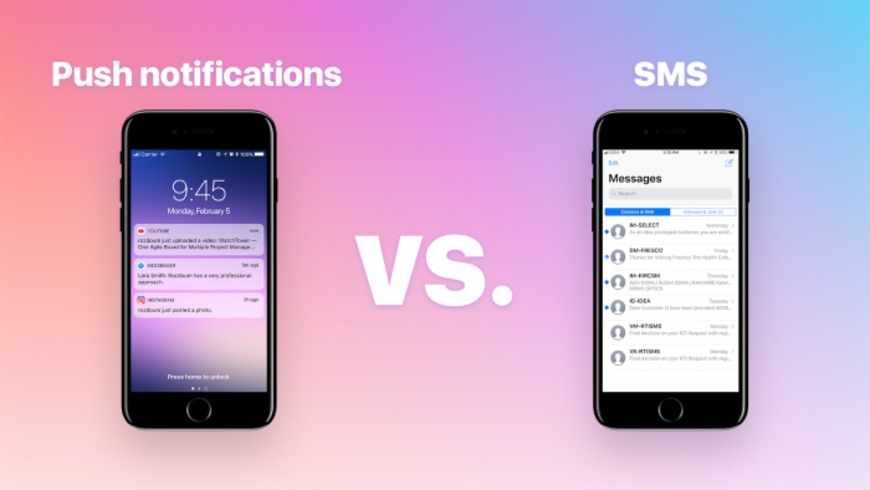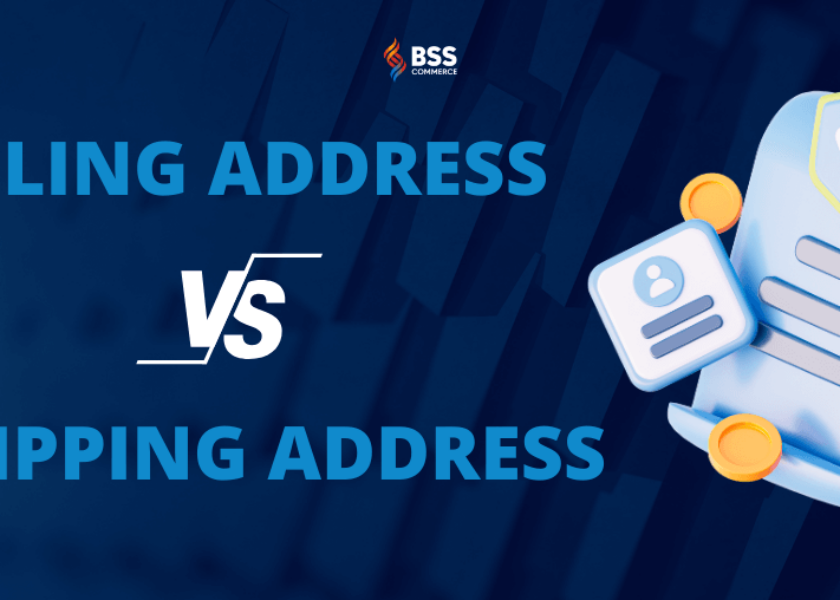Push Notifications vs SMS Notifications: Which One is More Effective?

Push notifications and SMS notifications are popular tools for any business to improve their customer engagement. So the question is: Which one is best for your store? Or which one your customers prefer to receive?
Don’t worry. We’re here to assist you. We’ll provide a deep understanding of these amazing tools and help you find out which one you should choose: push notifications or SMS notifications.
Contents
- What are Push Notifications?
- When to Use Push Notifications?
- Benefits of Push Notifications
- What are SMS Notifications?
- When to Use SMS Notifications
- Benefits of SMS Notifications
- What Is The Difference Between Push Notifications and SMS Notifications?
- Push Notifications vs SMS Notifications: Which One to Choose?
- Conclusion
What are Push Notifications?

Push notifications are pop-up messages that show up on your customers’ browsers regardless of which device they use or which browser they are on. Subscribers can browse anywhere and still get these messages provided that they are online or their browsers are running on their device.
When to Use Push Notifications?

Push notifications offer some features that make them a significant marketing channel. With these messages, apps can include gifs, audio, buttons, and so on, irrespective of the underlying carrier.
Besides, push campaigns can support other channels, such as email and in-app messages. If your push provider is an integrated marketing platform, you can monitor downstream conversions instead of surface metrics like click-through rates. Metrics like open rates are easy to track via push notifications, making them complementary to intricate campaigns.
Furthermore, push notifications have fewer technical and legal limitations than SMS. In the USA, the Federal Communications Commission sends mass promotional messages via SMS and email. Companies must be careful when sending text messages to users who haven’t joined. SMS content allows only 160 characters. Push notifications have no limitations, making them ideal for promotional messages.
Benefits of Push Notifications
Push notifications offer several benefits, including:
- User control: Asking a user to opt-in for notifications (and always letting them opt-out) and flexible notification preferences that allow users to control where and how they get notifications.
- Cost: Mobile users without limitless texting plans must pay for incoming texts and are inclined to opt-out of SMS communications, while push notifications don’t charge customers any fee.
- Risk mitigation: Push notifications follow the rules of the TCPA, because these notifications are completely opt-in/opt-out. Hence, push notifications may help mitigate the risk of bothering users and potential litigation.
- Engagement: Push notifications boost application engagement and accelerate retention rates.
Quickly notify all important push notification to customers right on browsers with Magento 2 Push Notification!
What are SMS Notifications?

SMS notifications are text messages that will be sent when an event happens. An event means something as useful as an app update to something urgent as a shipping delay.
When to Use SMS Notifications
Text messaging is universal. Unlike push notifications, text messages can be sent without app installs and notifications permissions. The universality of texting means that your message can access every customer with the same urgency level as a text from a friend.
Urgency is an important advantage of text messaging. Most texts will be opened in three minutes of delivery, while push notifications require 7-48 minutes.
Using an SMS notification extension for eCommerce stores is an ideal choice for sending vital notifications to both store owners and their customers. It notifies customers of their order/sales documents while informs admins about store activities and common errors.
A lot of industries, from healthcare to non-profits, leverage text messaging in their marketing. Using messaging APIs, retail businesses such as Nordstrom and Nike send messages to notify their clients of new campaigns or products. Besides, Walmarts uses promotional texts to send its deal of the day to millions of consumers.
Benefits of SMS Notifications

- Delivery guarantee: SMS notifications have a 100% guarantee of delivery to the customers. If the customer’s phone number is valid and the mobile network is good, SMS notifications will reach every user, even in different countries.
- Speedy delivery: SMS notifications can be sent without the presence of the Internet. Users will receive the SMS notifications a couple of minutes after they are sent.
- Storage function: SMS messages are saved on the users’ devices. After delivery, users can view the information any time they want.
What Is The Difference Between Push Notifications and SMS Notifications?

How your consumer can opt-in and opt-out
A significant difference between push notifications and SMS notifications is how your customers can decide to get them on their mobile devices.
With text messages, companies must have approval from the customer before they send texts. For sales or marketing purposes, express written approval is needed. For informational, non-telemarketing texts, businesses will need written or verbal approval.
To opt-out of text messages from a company, customers can respond to the text conversation with a single word, like UNSUBSCRIBED or STOP, and they should automatically be deleted from further communications.
Push notification approval is different. As an in-app function, users can navigate to the app’s settings to enable notifications. Or they can navigate to their phone’s general settings to turn on the notifications here. Opting out requires the same process.
Where the customer views your message

Besides, push notifications, and SMS notifications are also different in terms of delivery.
Push notifications show up on your screen, and if you don’t instantly tap on the message, it will disappear to your lock screen. While you’re not using your device, the notifications will stay on your lock screen until you tap on it or remove it. If the customer gets many push notifications from other apps, their lock screen can be messed, so the customer can ignore your message.
Meanwhile, text messages are stored on your phone. If you don’t instantly open a text, it still stays in your default message app, where you can see it anytime you want.
The content type and length
The type and length of content are also different in each method. Push notifications are concise, considered a marketing tool to encourage your customers to engage with your application, while text messages enable a flexible length and can convey informational and marketing messages for customer engagement.
Push notifications have a character restriction so that your message can properly popup on your customer’s screen. Messages for Android devices stay around 60-90, and less than 120 for iOS. According to a survey, push notifications that contain 10 or fewer words will have the highest click rate.
Text messages provide your company much more leeway with approval. SMS texts have a 160-character limit, but if you utilize business-texting software to text your clients, the limit can be expanded.
Texts can also consist of multimedia, like images and links, so that you can decide where to direct your recipients. Whereas push notifications don’t allow multimedia content or links, just include text and emojis.
Push Notifications vs SMS Notifications: Which One to Choose?

Understanding the difference between push notifications and SMS text messages is essential when determining which to choose for your users.
If you have an app as the main part of your business, you may want your customers to engage with your application. Sending push notifications is the perfect way to do that. Nevertheless, if you pursue a bigger communication goal, such as providing two-way conversations, an app may not be the appropriate tool to stick to.
Some data indicates that 64% of customers are NOT likely to download a business’s branded app. And 61% of those who download the app are inclined to remove it soon after. When it refers to communicating with a business, text messaging is the more favorite medium to go as it’s a popular and accessible channel.
77% of users claim that their most-used messaging app is the default texting app. Moreover, 73% say they expect more companies would use texting to interact with them.
Conclusion
That’s all the necessary information about push notifications and SMS notifications. We hope that this article can help your business to choose the best medium to communicate with your customers. Your decision should be based on your business’s type and its future goal.
BSS Commerce is one of the leading Multi-platform eCommerce solutions and web development services providers in the world. With experienced and certified developers, we commit to bringing high-quality products and services to optimize your business effectively. Talk to our expert now!
What do you think about these two types of notifications? Please share your opinion in the comment section below. We’d love to hear from you.




